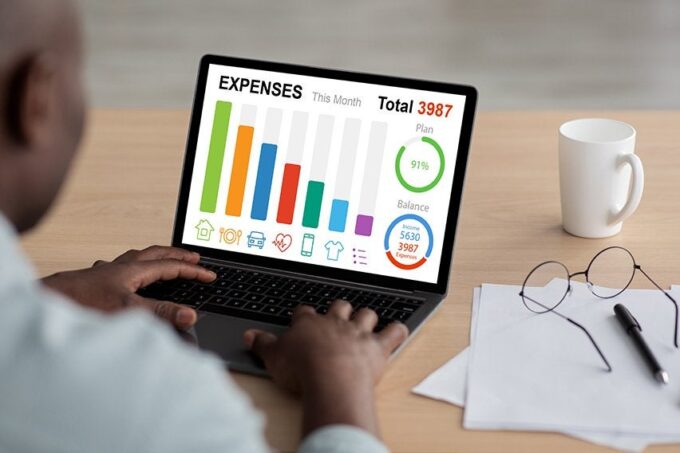Spending is of vital importance to any business, large or small. If you’re going to spend wisely, you need to spend deliberately, being mindful of which investments are important. There’s a very effective way of doing this: drawing up a budget.
A budget will allow you to determine when your business is growing, and when it’s making a profit that can be reinvested elsewhere. What’s more, it’ll let you see when spending needs to be scaled back to increase profitability.
Why does creating a budget matter?

Budgeting is crucial to business for several concrete reasons.
First, it will allow you to plan for the future of your business, and reduce spending on superfluous things. To put it another way, it’ll allow you to see which areas of spending are important to your business, and prioritize accordingly.
If you lack a budget, you’ll have to make spending decisions on an ongoing basis, which might lead to poor decisions.
Second, a budget will allow you to forecast your business’s performance in the months ahead. This information isn’t just of value to your business, but to investors and potential collaborators who might look for evidence that your business will be profitable in the future. In this respect, it serves a similar purpose to your business plan – and the two documents should inform one another.

Finally, we should consider that a budget will leave you better prepared to deal with emergency situations. If you’ve set aside a given amount to deal with the unexpected, then you’ll be cushioned when disaster strikes.
How to budget

So, you’re budgeting the cash flow in your business for the first time. What’s worth considering? Let’s look at the areas of your budget in turn.
Expenses
You’ll want to list all of your companies’ costs, including fixed ones and variable ones. Getting a good idea of all the outgoing cashflow is what will inform your spending reviews.
Earnings
This is the money coming into your business. Depending on the nature of your business, your revenue might come from the sale of physical goods, or the sale of services. Your budget should list how much you expect to earn for a given period, and how promptly you expect to be paid.
Delays can cause cash-flow trouble, even if everything adds up as it should. To counter this, aim to collect payments on time and set up incentives for clients to pay you on time, as this will be beneficial when budgeting your finances.
Adjusting the Budget as Needed

Once you have created an initial expense for your business, it is important to review and adjust it as needed. It is important to remember that a budget should not be rigid or static; it should be a tool that helps you stay in control of your finances as your business grows and changes.
Adjusting the budget as needed may require several steps. First, review your income and expense records from the preceding year so that your budget continues to reflect real-world financial trends for your business.

Secondly, you can revise estimates for anticipated income and expenses for the upcoming year – such as increased shipping costs due to rising fuel prices. Finally, monitor actual revenue collected each month against projected revenue to determine whether adjustments need to be made.
Align actual spending with projected spending by identifying areas where expenses exceed expectations – such as unanticipated project costs or an increase in credit card fees due to more online payments – and then make appropriate modifications by cutting back on other non-essential items or increasing revenue sources.
Remaining vigilant about reviewing past and current financial data will allow you to make adjustments if needed, helping you maintain adequate cash flow levels and keeping your business profitable into the future.
Tracking and Monitoring the Budget

Creating one for your business is the first step in maintaining the financial health of the organization. Once it is created, it needs to be tracked and monitored on an ongoing basis to make sure that actual results are in line with expected results.
Some businesses set up exclusive tracking accounts to document expenses and revenues, while others include tracking as part of their monthly or quarterly financial review process.
Tracking and monitoring it will help you to identify deviations from plan and make necessary adjustments. Here are some best practices for tracking:
-Develop detailed categories for expenses, such as salaries and benefits, supplies, legal fees, marketing and advertising costs, rent, travel expenses and more so it’s easier to compare actual spending with the original plan.
-Create categories for income too — track exactly how much money each sales channel generates or how many orders are placed through ecommerce websites versus physical retail stores.
-Track spending monthly so that you can make timely decisions if you’re over or underspending in certain areas compared to expectations.

-Include short-term costs as well so that you can anticipate cash flow requirements before they cause delays or issues with paying bills promptly.
-Evaluate revenue against cost — compare gross profit per unit sold against operational expenses such as labour costs in order to measure efficiency of operations against goals outlined in the original budget document.
-Analyze variances between expected results and actual results — use this analysis data proactively when creating future budgets rather than just relying on historical data trends alone.
Troubleshooting
Your budget should include an analysis of which areas need to be improved, and how you might go about creating that improvement. A third-party accountancy service might be brought in to survey your budget, and recommend specific actions to drive up profitability. In many cases, a significant difference might be made through seemingly minor technical tweaks.
Forecasting

If you don’t have an eye on the future, then you might be blindsided. Your forecasts should account for expected market conditions. You might then later come back to check whether the forecasts were accurate. This information might then inform future budgets.
Conclusion
Creating and managing a budget for your business can help you to achieve long-term success. Properly tracking income and expenses will give you a better understanding of the financial health of your business.
Budgeting is an important part of ensuring that your organization runs smoothly and efficiently, so it is important to take the time to formulate an appropriate budget tailored to your specific needs.









